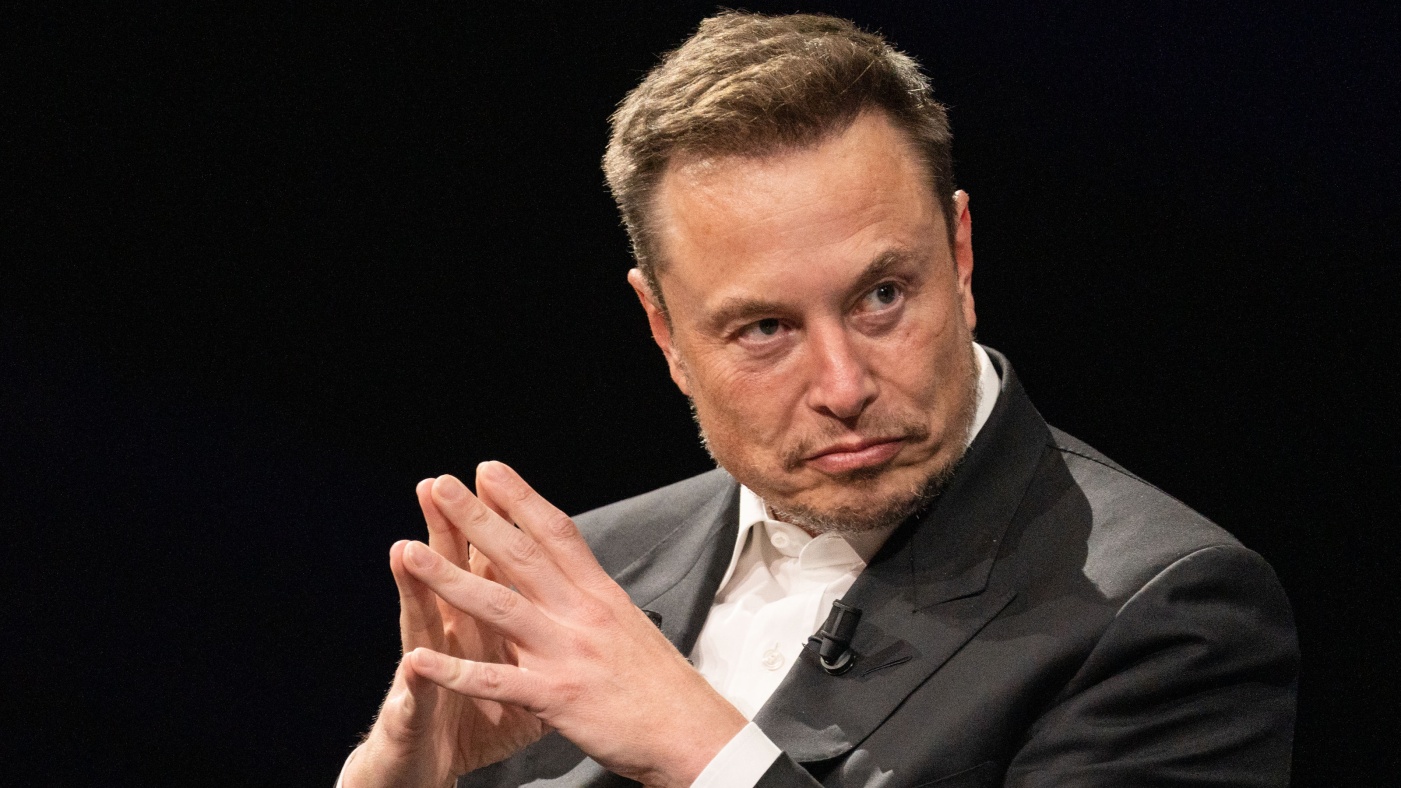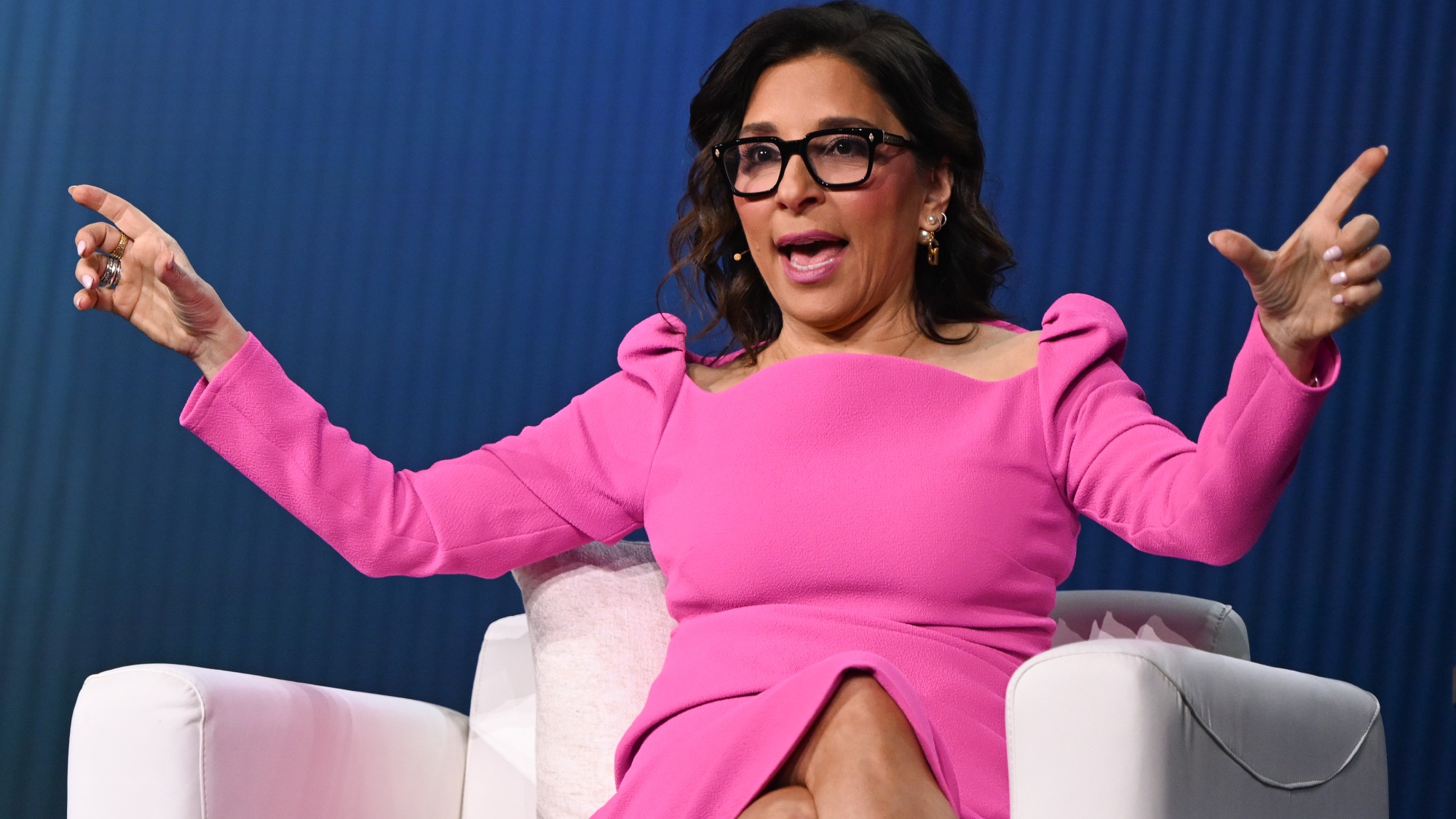Tweet of clay: will Twitter’s demise bring down Elon Musk?
Controversial rate limits come as Meta prepares to launch its rival to the social media platform

A free daily email with the biggest news stories of the day – and the best features from TheWeek.com
You are now subscribed
Your newsletter sign-up was successful
Twitter faced an angry backlash from its users after Elon Musk said the platform was introducing temporary limits on the number of posts that can be viewed.
The billionaire entrepreneur, who bought Twitter for $44 billion in October, announced the “temporary measure” in a tweet on Saturday. He said it was “to address extreme levels of data scraping” on the site by artificial intelligence companies.
An initial 600-tweet limit for unverified users was increased to 1,000 after criticism of the decision, while “rate limits” for verified users were increased from 6,000 to 10,000 tweets a day.
The Week
Escape your echo chamber. Get the facts behind the news, plus analysis from multiple perspectives.

Sign up for The Week's Free Newsletters
From our morning news briefing to a weekly Good News Newsletter, get the best of The Week delivered directly to your inbox.
From our morning news briefing to a weekly Good News Newsletter, get the best of The Week delivered directly to your inbox.
‘Musk’s unravelling image’
It was yet another “perplexing and worrying” decision made by Musk, whose stewardship of Twitter has “lurched from scandal to scandal” since his takeover in October of last year, said Andrew Griffin in The Independent. It remains unclear if, as Musk has claimed, the rate limits have anything to do with scraping by artificial intelligence systems, or if it is an excuse that “chimes with the zeitgeist”, as other social media companies, such as Reddit, have become increasingly concerned over the issue.
“Is Twitter’s so-called rate limit a technical mistake that’s being passed off as an executive decision?”, asked Charlie Warzel in The Atlantic. “Or is it the opposite: a daring gambit of 13-dimensional chess, whereby Musk is trying to plunge the company into bankruptcy and restructuring?”. The unfolding situation had made “conspiracy theorists out of onlookers”, many of whom are now wondering whether Musk has planned to “slowly and steadily destroy the platform all along”.
But what should be “obvious” to anyone who has been paying attention to his Twitter tenure is that Musk is “bad at this”. His “incompetence” at running Twitter should “unravel his image as a visionary, one whose ambitions extend as far as colonising Mars”.
It was his reputation, far more than his vast wealth, that was Musk’s “real fortune”, continued Warzel. “But Musk has spent this currency recklessly. Who in their right mind would explore space with a man who can’t keep a website running?”
A free daily email with the biggest news stories of the day – and the best features from TheWeek.com
‘More sanely run Twitter clone’
It was a “trying weekend” for those who still believe Musk can turn Twitter into a “success story”, said Dave Lee for Bloomberg. Yet the “embarrassment” of having to limit the number of tweets users can see each day was “the surest sign yet that Musk’s cost-cutting has come with real consequences, not the least of which is opening the door to competitors”. Until now, Musk has been “fortunate” that “no real viable alternative” to Twitter has emerged since his takeover last autumn.
But that could be about to “abruptly” change with the arrival of Threads, Meta’s alternative to Twitter, which could be launched as soon as this week. The new platform could “immediately upend” the competitive landscape; one Meta executive described it as an opportunity to create “a more ‘sanely run’ Twitter clone” and one where “the owner doesn’t amplify far-right views or discredit reliable sources of information”.
One of the most concerning aspects of Musk’s Twitter takeover has been his peddling of “far-right conspiracy theories and racist misinformation”, said James Greig, writing for Dazed. And his “drift to the far-right” has come at a cost. While he was once a “broadly popular” figure with the American public, he is now a “polarising” one.
But while being a “divisive figure might pay off if you’re a Republican candidate”, it is less so for a businessman. Tesla shares are struggling and advertisers are abandoning Twitter. “But Musk is still a billionaire and, whatever happens, he will be insulated from the effects of the anger, fear and resentment he is helping to ferment,” wrote Greig. “The rest of us might not be so lucky.”
Sorcha Bradley is a writer at The Week and a regular on “The Week Unwrapped” podcast. She worked at The Week magazine for a year and a half before taking up her current role with the digital team, where she mostly covers UK current affairs and politics. Before joining The Week, Sorcha worked at slow-news start-up Tortoise Media. She has also written for Sky News, The Sunday Times, the London Evening Standard and Grazia magazine, among other publications. She has a master’s in newspaper journalism from City, University of London, where she specialised in political journalism.
-
 What to know before filing your own taxes for the first time
What to know before filing your own taxes for the first timethe explainer Tackle this financial milestone with confidence
-
 The biggest box office flops of the 21st century
The biggest box office flops of the 21st centuryin depth Unnecessary remakes and turgid, expensive CGI-fests highlight this list of these most notorious box-office losers
-
 What are the best investments for beginners?
What are the best investments for beginners?The Explainer Stocks and ETFs and bonds, oh my
-
 Are AI bots conspiring against us?
Are AI bots conspiring against us?Talking Point Moltbook, the AI social network where humans are banned, may be the tip of the iceberg
-
 Elon Musk’s pivot from Mars to the moon
Elon Musk’s pivot from Mars to the moonIn the Spotlight SpaceX shifts focus with IPO approaching
-
 Moltbook: the AI social media platform with no humans allowed
Moltbook: the AI social media platform with no humans allowedThe Explainer From ‘gripes’ about human programmers to creating new religions, the new AI-only network could bring us closer to the point of ‘singularity’
-
 Will regulators put a stop to Grok’s deepfake porn images of real people?
Will regulators put a stop to Grok’s deepfake porn images of real people?Today’s Big Question Users command AI chatbot to undress pictures of women and children
-
 Inside a Black community’s fight against Elon Musk’s supercomputer
Inside a Black community’s fight against Elon Musk’s supercomputerUnder the radar Pollution from Colossal looms over a small Southern town, potentially exacerbating health concerns
-
 X update unveils foreign MAGA boosters
X update unveils foreign MAGA boostersSpeed Read The accounts were located in Russia and Nigeria, among other countries
-
 What's Linda Yaccarino's legacy? And what's next for X?
What's Linda Yaccarino's legacy? And what's next for X?Today's Big Question An 'uncertain future' in the age of TikTok
-
 X CEO Yaccarino quits after two years
X CEO Yaccarino quits after two yearsSpeed Read Elon Musk hired Linda Yaccarino to run X in 2023